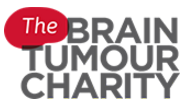This article may rely excessively on sources too closely associated with the subject , potentially preventing the article from being verifiable and neutral.(April 2016) |
 | |
| Founded | 1996 |
|---|---|
| Founders | Neil Dickson, Angela Dickson, Andy Foote |
| Type | Charitable organisation |
| Registration no. | England and Wales: 1150054 Scotland: SC045081 |
| Headquarters | Fleet 27, Rye Close, Fleet, GU51 2UH |
Area served | United Kingdom |
Key people | Alex Lochrane (CEO) |
| Revenue | £7.61 million (2014/2015) |
| Website | www |
Formerly called | Samantha Dickson Brain Tumour Trust, Brain Tumour UK, The Joseph Foote Trust |
The Brain Tumour Charity is a British charity dedicated to funding research, raising awareness of brain tumours, reducing diagnosis times and providing support and information for people with brain tumours, their families and friends.